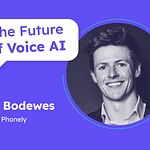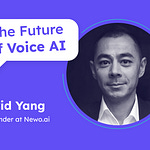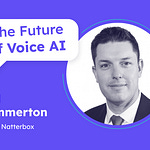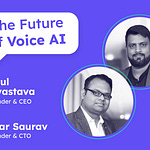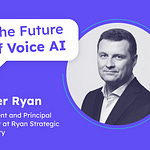In the Future of Voice AI series of interviews, I ask three questions to my guests:
- What problems do you currently see in Enterprise Voice AI?
- How does your company solve these problems?
- What solutions do you envision in the next 5 years?This episode’s guest is Malte Kosub, CEO and Co-Founder at Parloa.
Malte Kosub is co-founder and CEO of Parloa. The software company developed a SaaS enterprise-solution for the automation of customer communication based on artificial intelligence. He is also co-founder of Future of Voice, one of the leading agencies for Conversational AI in Europe. Malte is a faculty member of the Futur/io Institute and completed business studies at The University of Hamburg (Universität Hamburg), Harvard University, and Massachusetts Institute of Technology.
Parloa is a leading AI company that automates customer service. Parloa’s platform unites humans and AI in one team to take companies’ service quality to a new level through AI-based customer service, natural-sounding conversations, and outstanding service experiences on the phone and all communication channels. The Parloa platform resolves most customer queries quickly and automatically, allowing contact center agents to focus on complex issues. Parloa was founded in 2018 by Malte Kosub and Stefan Ostwald and today employs about 250 people in Berlin, Munich, and New York.
Recap Video
Takeaways
Parloa got started in 2018 with a clear focus on voice, seeing the most relevant channel for companies was still the phone.
The shift from chatbots to AI voice agents is happening faster than expected, driven by customer preference for voice.
As AI adoption grows, Parloa is leading the shift toward smarter, more personalized voice interactions that feel less robotic and more human.
Scaling AI in CX requires deep industry-specific customization, not just a one-size-fits-all model.
Businesses now see AI as a way to improve customer experience, not just cut costs.
Legacy call center systems weren’t designed for AI, making integration one of the biggest barriers to adoption.
Training AI for customer service takes a lot of data—more than most companies expect.
Comparing AI to older software is the wrong approach—AI should be measured against human performance.
Parloa uses real-world simulation and evaluation test cases to train AI models to make sure it understands and responds correctly before going live.
Shifting to AI-driven customer service requires a major change in mindset, not just better tools.
Many believe speech-to-text is a solved problem, but it still struggles with accuracy in real conversations at scale.
The goal isn’t to replace human processes but to bring them into the AI era for better efficiency.
AI success depends on how well companies design and use it, not just the technology itself.
The industry is moving beyond “AI for the sake of AI” and focusing on real outcomes like CSAT and impact on revenue.
AI-powered customer support is just the beginning—there’s a bigger transformation happening beyond support.






